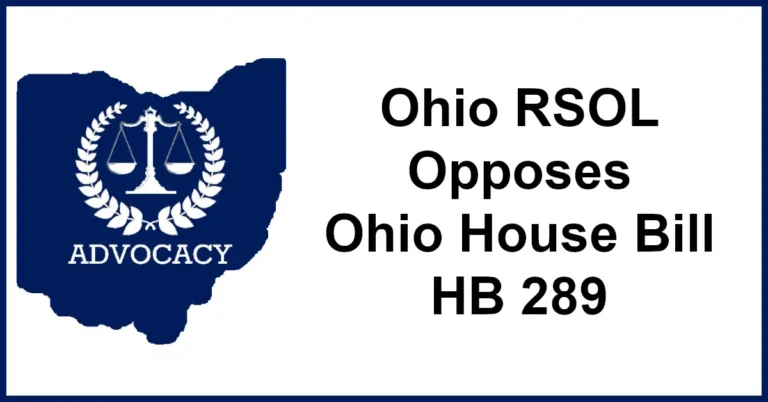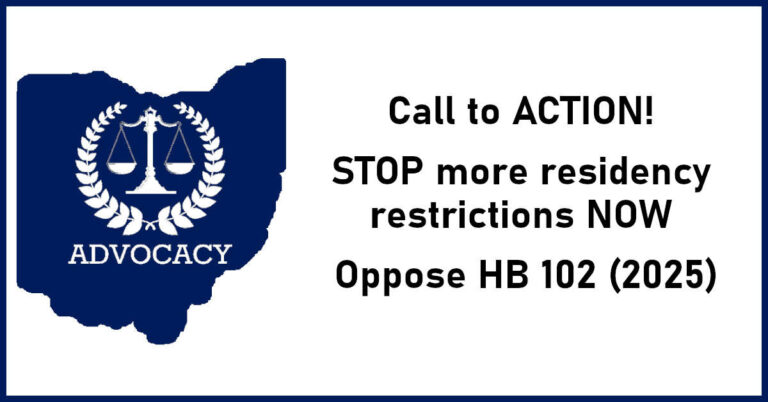by Barb Wright
February 2021
Families and Individuals for Reform (FAIR) and 682 potential “eligible offenders have received a Christmas present in the form of a “Christmas tree” bill at the end of the 133rd General Assembly. A Christmas tree bill is a conglomeration of bills, usually of related content (but sometimes not), that passes during the lame duck session between the election and the end of the legislative session. This type of bill allows passing into law a bill that has received support from the legislature but has not received the necessary number of hearings or floor votes. It also allows passage of unpopular bills that leadership supports but wants to hide. Such was the case with Senate Bill 47.
FAIR had spent the last five years working on a bill to allow those who are 18-20 years old and required to register for a conviction of unlawful sexual conduct with a minor to petition for modification or termination of that duty. The bill was a combination of provisions from the juvenile code, statutes from other states, and suggestions from interested parties. FAIR spoke to lawmakers, prosecutors, judges, representatives from youth services and the Attorney General, and survivor groups. The proposed bill almost got to the finish line as an amendment to a Christmas tree bill in 2018, but it failed on the last day of session.
So, FAIR started over in 2019. The latest iteration of that effort, Senate Bill 47 (SB 47), was introduced early in the 2019-2020 session, and had been recommended unanimously by the Senate Judiciary Committee for passage. All that was needed was a Senate floor vote during Senate session, and then the process would be repeated in the House of Representatives. But because of the subject matter, the Senate President never scheduled a vote during Senate Session, a process called “third consideration.”
By summer break in 2020, it became clear that the bill would not be passed as a “stand-alone” bill. FAIR would need to find a bill that 1) was likely to pass, 2) was germane to the subject matter, and 3) add the bill as an amendment to that bill. With issues involving COVID-19, drug sentencing reform, gun rights, and Black Lives Matter on the forefront, legislation regarding other topics seemed unlikely to be considered.
When legislature was about to reconvene after breaking for COVID-19, the Speaker of the House was indicted by the FBI for embezzlement, racketeering, and other charges related to the passage of House Bill 6. HB 6 was the energy bill which allowed Ohio’s nuclear plants to remain open. Speaker Householder allegedly accepted more than $4 million from FirstEnergy Solutions, now Energy Harbor, to push the bill through. Representative Bob Cupp took over as Speaker of the House.
Lobbying is all about relationships. FAIR had established relationships with the old leadership team and would now have to start over with a new team. And to make matters worse, the legislature came to a grinding halt before the elections. All 99 Representatives and half of the 33 Senators were campaigning for office in November. It was sure to be a whirlwind lame duck session after the elections.
FAIR had given up and resigned to reintroducing the bill again in January. Then came House Bill 431 (HB 431), a bill to create a sexual exploitation database. HB 431, promoted by the Ohio Attorney General, would create a “john database” as a disincentive for the demand side of human trafficking. Of course, FAIR was opposed to creating a new database, but it was the only bill that was moving that SB 47 might be included in.
And then a miracle happened. The database provisions were removed entirely from HB 431. What remained was a combination of human trafficking improvements and the entirety of SB 47 Allow certain sex offenders to petition for SORN reclassification.
Substitute House Bill 431 (HB 431) passed the Senate by a vote of 32-0 on December 17, 2020. The House of Representatives concurred in the amendments to the bill. This bill, as amended, enacts new Section 2950.151 of the Ohio Revised Code as of April 12, 2021.
The passage of HB 431 is a testament to what can be accomplished with the four “Ps:” Be Polite, Professional, Persistent, and Passionate. And believe in miracles.



